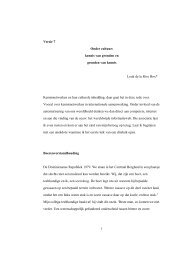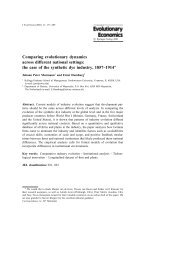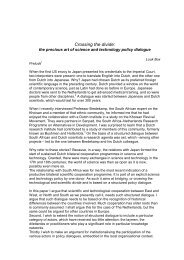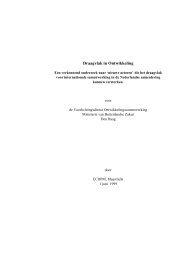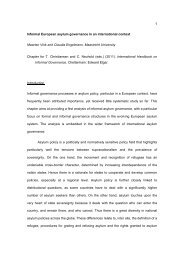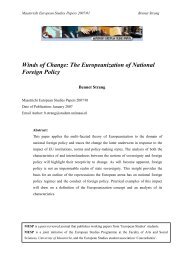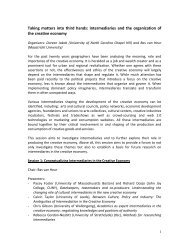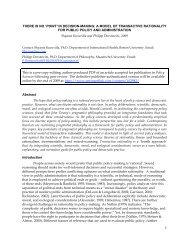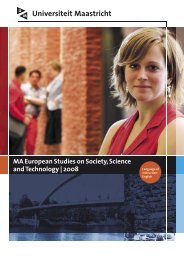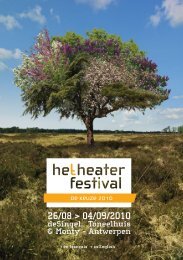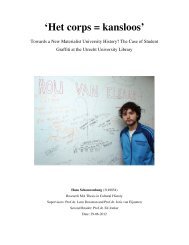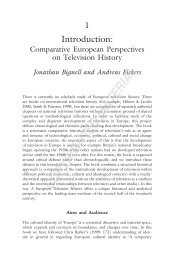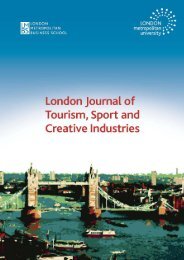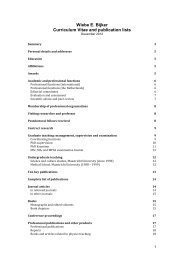Download paper - Maastricht University
Download paper - Maastricht University
Download paper - Maastricht University
Create successful ePaper yourself
Turn your PDF publications into a flip-book with our unique Google optimized e-Paper software.
<strong>Maastricht</strong> European Studies Papers 2007/07 L. Unbehauen<br />
degree system and the recognition and periods of studying. Especially the issue of developing<br />
common criteria and methodologies for national QA was a hot topic. The educational<br />
ministers demanded that by 2005 national QA agencies should clearly define the<br />
responsibility of involved institutions, evaluate programs and institutions through internal<br />
assessment, external review, participation of students and the publication of results as well as<br />
a system of accreditation, certification or comparable procedures, international participation,<br />
co-operation and networking (Berlin Communiqué, 2003). The commitment to adopt<br />
guidelines and standards for QA has also been the focus of the last conference in Bergen in<br />
2005.<br />
This ambition will be, however, difficult to realize because of the variety of QA<br />
systems that exist on the national level. Even countries with very similar structures (most-<br />
likely case) such as the Belgian Flanders and the Netherlands had to overcome various<br />
differences regarding procedures and strategies until they could establish the Dutch-Flemish<br />
Accreditation Organization NVAO in 2004 (Dittrich, Frederiks & Luwel, 2004, p. 300). The<br />
differences stem from “different cultures and traditions, but also different policy objectives<br />
and differences in policy implementation” (p. 309). The first set of disparity can be traced<br />
back to the procedural workings in a country, such as different authorization procedures for<br />
temporary accreditation and duration of accreditation (8 years in Flanders, 6 in the<br />
Netherlands). For example, in Flanders the decision to grant accreditation has to be taken in<br />
four months (three in the Netherlands); submission of application for accreditation is<br />
prescribed more in detail and application costs are lower than in the Netherlands; and<br />
complaints and appeal procedures differ as well (p. 311). This example demonstrates the<br />
complexity of establishing a European-wide system of QA which remains an open issue to<br />
debate on the agenda of the Bologna Process.<br />
4. The Strategies of the European Commission to Promote Consensus<br />
When looking at the Bologna Process so far, it seems like a natural development that at least<br />
the members of the EU would give up their sovereignty in this field and pool their education<br />
policies. However, this trend has proven to be a contested and lengthy process. This is<br />
confirmed by the fact that despite acknowledging the extension of the EU’s higher education<br />
activities, the EU’s sphere of influence has been limited in the Treaty of <strong>Maastricht</strong> to<br />
encourage international mobility and to “only support and complement policy action at the<br />
9



